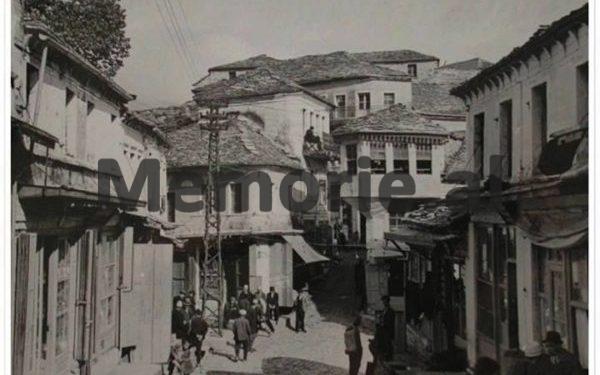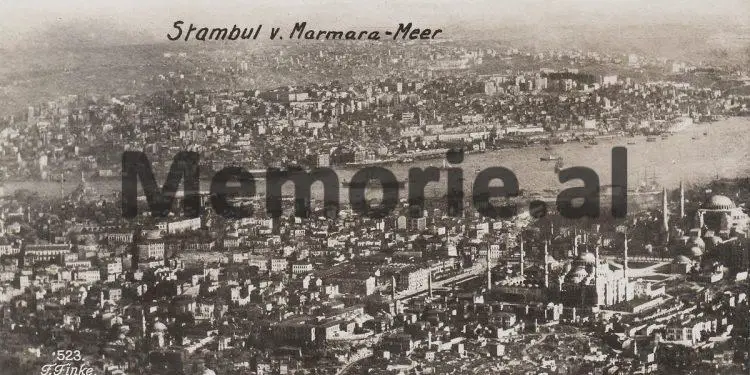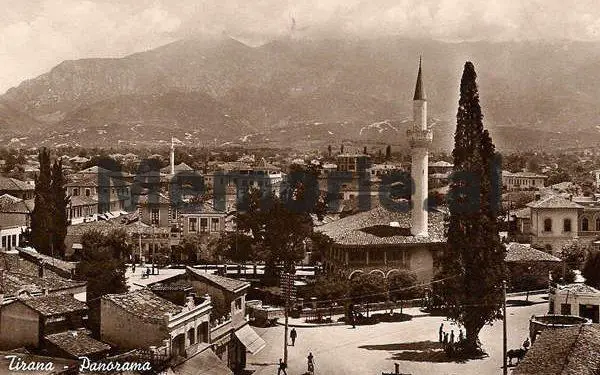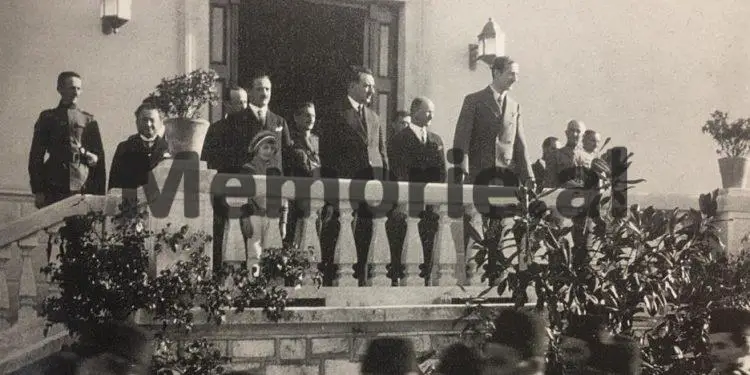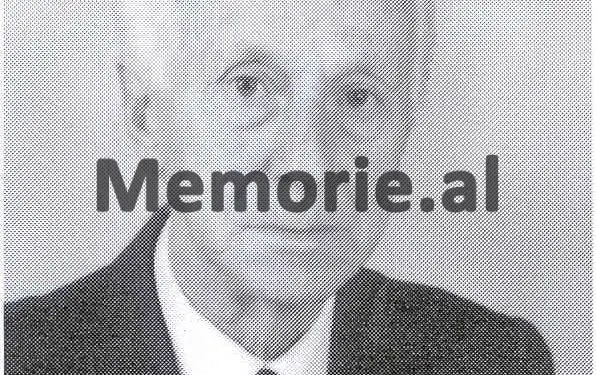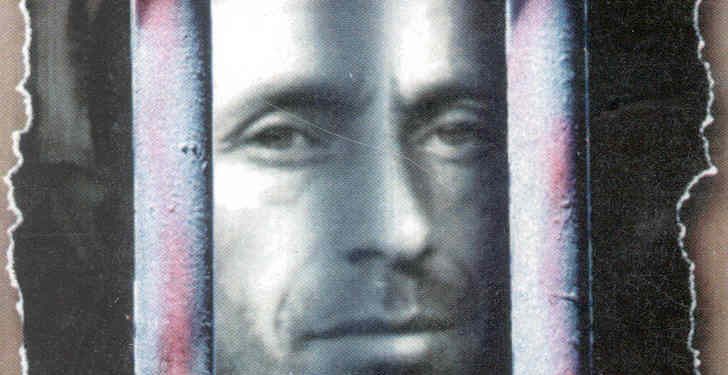Dashnor Kaloçi
Memorie.al publishes the unknown story of Rasim Kalakulla, originally from Libohova, who graduated with honors in Political Science at Istanbul University, where, as a sign of gratitude, the rector donated the watch that his family still keeps today. as a relic of great value. His close friendship with Mustafa Kemal Ataturk who offered “his Albanian brother” to work in the state administration of Istanbul and the rejection by Kalakulla after he had decided to return home to contribute to the formation of the new Albanian state. After serving for several years as deputy prefect in Anatolia and prefect of Mosul in Iraq, he returned to Albania and was appointed mayor of Shkodra and mayor of Tirana where he died on October 29, ’38. leave the wife with seven children in complete misery and in a rented house. Which forced King Zog to make a magnificent funeral ceremony, attended by many senior politicians and hundreds of Tirana residents, while the communist regime not only never considered him a fan, but persecuted his family and sentenced him his son, Uranus, to 21 years in political prison.
It was October 29, 1938, when in the square in front of the old mosque of Tirana, by order of King Zog, under the sounds of the city music band and with all occasional honors, the magnificent funeral ceremony of Rasim Kalakulla, former -Mayor of Tirana, who had served for several years as a member of the Supreme State Council. That day, as rarely ever, in the funeral ceremony organized by the state, attended a large number of personalities of politics, the royal administration and residents of Tirana. But who was Rasim Kalakulla, what was his past and why was he being escorted to the last apartment so pompously?
Graduated in Istanbul for Political Science
Rasim Kalakulla was born in the city of Gjirokastra in 1885, where his father, Sejdiu, was a small merchant, operating within the city, earning enough to support his family. Rasim was educated in a Mejtep (Turkish primary school) of Gjirokastra, and then in the city of Manastir in a Mylqije (high school), which he finished with very high results around 1902. Then, his father, Sejdiu sent him to study in the capital of the Ottoman Empire in Istanbul, where Rasim enrolled and began teaching at the Faculty of Political Science. During those years he closely followed the Balkan policy and the situation in which Albania was. Rasim was a sympathizer of the Young Turk movement with illusions (like many other Albanian idealists of the time), believing in the reforms of their liberal-democratic program. At that time, in Istanbul there were a large number of Albanian patriots who had dedicated their lives to the national cause, such as the well-known publicist Shahin Kolonja, the brothers Çerçiz and Bajo Topulli, etc., with whom Rasimi had a close connection and cooperation.
The rector of the university donated the watch to him as an excellent student
Rasim Kalakulla graduated with high results, distinguishing himself from other students, who were from different countries of the world, and at the graduation ceremony, the rector of the university, who was an Arab, handed over the Albanian student in gratitude and remembrance, Kalakulla, his wristwatch. Even today, after almost a century, that watch is still preserved by his family, as one of the most valuable relics that house has. During the period of studies in Istanbul, Rasimi cooperated closely with many Albanian patriots, such as Shahin Kolonja, brothers Bajo and Çerçiz Topulli, etc. According to their orders, from time to time he smuggled Albanian primers and books, which were secretly printed in the capital of the Turkish Empire, and brought them to Gjirokastra. Often in that adventure of spreading Albanian books, which was categorically forbidden by a special decree from the High Gate, Rasim had a great help from his sister, Sabrija, who distributed them to the neighborhoods of Gjirokastra… Although Rasim did not reside in Sofia, he was a member of the patriotic society of the Albanian colony of Bulgaria, fulfilling all the tasks assigned to him in the distribution of Albanian books.
He rejected Ataturk’s offer for the Istanbul administration
The outbreak of World War I in 1914 found Rasim as deputy prefect of Konya in Anatolia, and in the same year, by decree of the High Gate, he was appointed prefect of the first degree (Mytesarif) in the city of Mosul in Iraq. There he was assigned the post of rear chief on the Turkish-British fighting front, where the British were trying to invade Iraq, which was then under the Ottoman Empire. In these battles was the commander of the front Mustafa Qemali, (Ataturk) with whom Rasim formed a close friendship. This friendship between them as compatriots (Mustafa Qemali expressed his Albanian origin) was so great that when he became president of the Turkish state, he sent words to Rasim through the press, inviting him to give him a post senior in the newly created administration of the Turkish state. This offer of Ataturk was not accepted by Kalakulla, who had decided to return to Albania forever. The division between Rasim and Mustafa Qemali took place at a time when the Turkish army, on the front commanded by Mustafa, was broken by the British. After that, Mustafa Qemali went to Istanbul to reorganize the military forces, but at that time, Rasim returned to Albania and did not go to Mosul.
Returns to Albania, deputy prefect in Pogradec
Towards the end of 1918, Rasim left Turkey and returned to Albania, where the state administration, which was under Austro-Hungarian control, immediately appointed him deputy governor of Pogradec. His departure from Turkey, although promised high positions in the local administration, happened because he believed in his ideals for the creation of a new Albanian state. After some time in the position of deputy prefect in the lake town, he was transferred from there and appointed to Libohova and Konispol, with the same task. After nearly four years of work as deputy prefect of Pogradec, Libohova and Konispol, in 1922, at the request of the Minister of Interior, Ahmet Zogu, Rasimi came to Tirana, where he was appointed Inspector General of the Ministry of Foreign Affairs. interior. During those years, when Rasim worked in that position, thanks to the knowledge of several foreign languages (Turkish, German, French, Arabic and Persian) he did a great job in drafting the codes and laws of administrative law of that ministry, of which were sent for approval to Parliament. In 1924, during the armed uprising of the fanatical forces, although he did not take an active part, Kalakulla was their sympathizer in the violent overthrow, which those forces made of the government of Shefqet Vërlac, where Ahmet Zogu held the post of Minister of Interior. In his memoirs, Rasimi wrote that joining the fanatical forces came as a result of the sympathy he had for Fan Noli and his followers and the propaganda they made with the democratic slogans, which he greatly preferred. Given Rasim’s stance on the fanatical forces during the June 1924 Uprising, he was able to return to the post he held in the Interior Ministry. But also, to Noli’s government which came to power with armed insurgency, Kalakulla maintained a critical attitude by openly expressing his reservations. Thus, he raised his voice, criticizing the government for not realizing the promised democratic reforms, for the mistreatment and persecution of their political opponents, who had resisted in defense of Ahmet Zogu, for the inconsistent foreign policy and especially for the connection diplomacy that the Noli government made with the Soviet Union and for the administrative mess and non-compliance with the legal and state norms of the administration of the government that came to power.
Fanolist, Zogu appoints him prefect in Shkodra
After the failure of the government of Fan Noli and the return of Ahmet Zogu to power in December 1924, Rasim Kalakulla left Tirana and settled with his family in the city of Durrës. He did not leave Albania like many other anti-Zogists, because he had not taken an active part in the June Counter-Revolution and was not guilty of criminal charges. For the two years that Rasim stayed in the coastal town, he took up his private affairs to support the family. In his house, he occasionally housed many of Zog’s political opponents, such as Zenel Prodani and others, who hid from the pursuit of government forces because they had not been able to leave the country. Although Prime Minister Ahmet Zogu knew very well Kalakulla’s attitude to the events of June ’24 and his being as Inspector General in the Ministry of Interior during Noli’s rule, in 1926 he called on him to come to Tirana. and to take office, after he had appointed him as prefect of Shkodra. Kalakulla welcomed Zogu’s proposal and immediately took office in the city of Shkodra, where at that time the Dukagjini uprising against Zogu’s government had started (instigated by the Serbian government of Pashiq), led by Dom Nikoll Gazulli and Lieutenant Ndok Gjeloshi. As Shkodra mayor, Rasim Kalakulla occasionally clashed with Interior Minister Musa Juka, one of King Zog’s most loyal men, as he often opposed his minister ‘s orders to seize property. of Zog’s political opponents, who had taken part in the events of June 1924 and had fled Albania. As was Xhemal Bushati, the man who held the post of Interior Minister during the six months of Noli’s rule. Due to Kalakulla’s opposition to Minister Juka’s orders, which he called unfair and unfounded in law, he was fired several times by him, but was reappointed as soon as he complained to Zogu, who in that conflict gave right to the prefect of Shkodra.
Mayor of Tirana
As the conflict between Kalakulla and the Minister of Interior, Musa Juka became very tense, in 1927 Zogu transferred Rasim to Tirana, giving him the post of deputy prefect of the capital (the prefect was Izet Dibra) and a year later later, in 1928, he was appointed mayor of Tirana, a position he held for three years, until 1930. During the time that Kalakulla was in the function of the mayor of Tirana, he gave a great help in the realization of the projects, the construction of the Kavaja street (then it was called “Mussolini” boulevard) and the main boulevard from the center to the maternity hospital, which took the name “The First Bird”. Also, during this time, in the Albanian capital, with the help of Italian architects, the first projects for the regulatory plans of the main streets and squares began to be made, which would be built by the end of the ’30s. Rasim Kalakulla remained at the head of the Municipality of Tirana until 1930, when he left and was appointed a member of the Supreme Council of State (Senate), a position he held until the end of his life, in October. of 1938. Throughout the period that Rasim was in Tirana, both as mayor and as a member of the High Council of State, he worked with a high devotion and professionalism, arousing respect in the whole class. Albanian politics of the time, which highly valued him, especially for his honesty. Although he held high positions in Tirana for almost ten years, he never managed to own any of his property. Likewise, during those ten years, he never managed to have a house of his own, but always lived as a tenant in the old Tirana adobe houses, as he could not afford to pay. Even a small plot of land he managed to buy from the government in installments, when the state administration sold land to its employees (where the Rogner Hotel is today), never managed to build a house. He refuses to give that land to even an Italian construction company, which wanted him to build a palace, thinking that the Italians would not benefit at the expense of poor Albanians.
He died in misery in 1938
Rasim Kalakulla died of a heart attack on October 28, 1938 and his death was a real disaster for the family, as the woman was left a widow with seven children not very grown up, having neither a house nor any financial income for living. On the day he passed away, there was no income in the family coffers either for his burial or enough to spend the month. Despite the obstacles raised by Minister Musa Juka for his burial, by direct order of King Zog, a government commission was formed, which organized the entire funeral ceremony with due honors. His funeral ceremony began with a military procession in front of the mosque square in the center of Tirana, attended by a large number of people from politicians and state administration, such as: Mirash Ivanaj, chairman of the Supreme State Council, Mit`hat of Mehdi Frashëri, Rauf Fico, Eshref Frashëri, Demir Vila, Kristo Floqi etc. The keynote address at the funeral ceremony was given by Mirash Ivanaj, a speech which was published together with the relevant obituary in the pro-government newspaper “Shtypi”. Even after the communists came to power in November 1944, the Kalakulla family plunged deeper into misery, as it was called the reactionary family of the overthrown classes. One of Rasim’s sons, Uran Kalakulla, suffered for 21 years in the prisons of the communist regime of Enver Hoxha, after in 1961 he was accused of being the leader of a group that wanted to form a social-democratic party./Memorie.al





